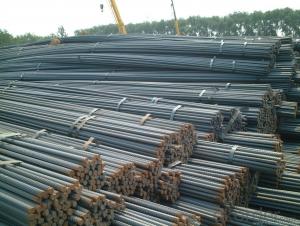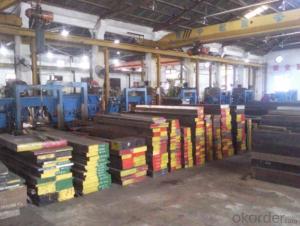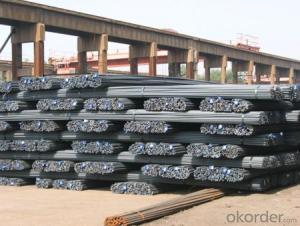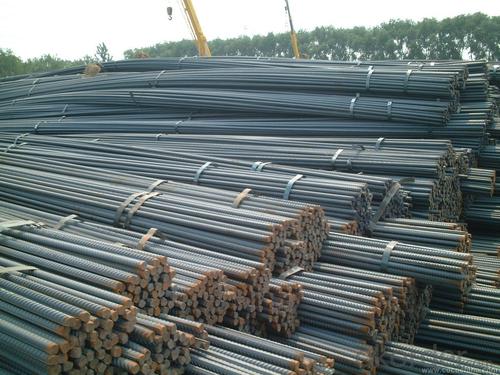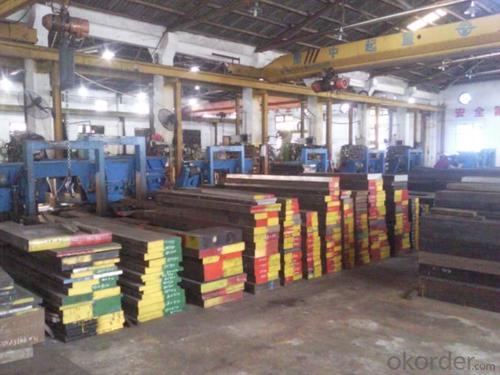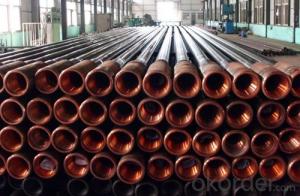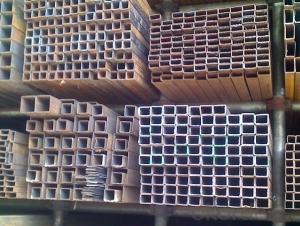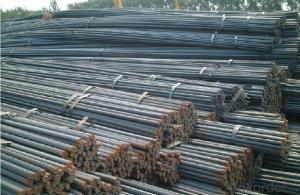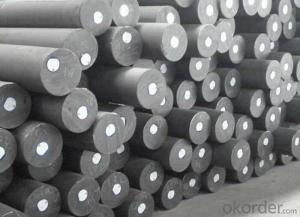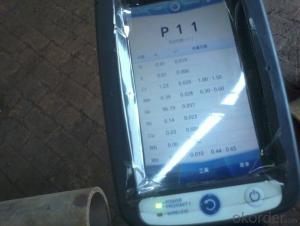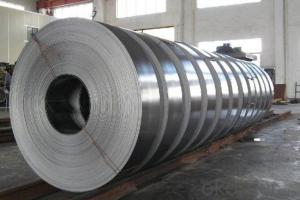Steels Manufacture Building Material Construction Made in China China on Hot Sale
- Loading Port:
- Tianjin
- Payment Terms:
- TT OR LC
- Min Order Qty:
- 100 m.t
- Supply Capability:
- 1000 m.t/month
OKorder Service Pledge
OKorder Financial Service
You Might Also Like
1.Packaging & Delivery
Packaging Detail: | in bundles or as customer's requirement |
Delivery Detail: | Within 30days after receiving your deposit or copy of L/C |
2.Specifications
HRB400,HRB500 Steel Rebars
1.China direct supplier
2.Best service
3.Competitive price
4.Quantity assured
3.Product Description
Name | High Tensile Export Reinforcing Steel Bar ,Deformed Steel Bar ,HRB400B,HRB,46B,HRB500 Building Construction Material |
Standard | ASTM A615 /BS BS 4449 /GB HRB/ JIS G3112 |
Grade | A615 Gr40/60/75 BS 4449 Gr460,B500 GB HRB335,HRB400 ,HRB500
JIS G3112 SD390
|
Diameter | 6mm-40mm |
Length | 6-12m |
Technique | Low temperature hot-rolling reinforcing deformed steel rebar |
Tolerance | As the standard or as your requirement |
Application | Building, construction, road, bridge,etc |
Certificated | BV |
MOQ | 500tons per size steel rebar |
Packing details | Steel rebar packed in bundle or as your requirement |
Delivery | Within 30 days after deposit |
Payment | T/T or L/C |
4.Chemical Composition
Grade | Technical data of the original chemical composition (%) | |||||||
C | Mn | Si | S | P | V | |||
HRB400 | ≤0.25 | ≤1.60 | ≤0.80 | ≤0.045 | ≤0.045 | 0.04-0.12 | ||
Physics capability | ||||||||
Yield Strength(N/cm2) | Tensile Strength(N/cm2) | Elongation (%)
| ||||||
≥400 | ≥470 | ≥14 | ||||||
Grade | Technical data of the original chemical composition (%) | |||||||
C | Mn | Si | S | P | V | |||
HRB500 | ≤0.25 | ≤1.60 | ≤0.80 | ≤0.045 | ≤0.045 | 0.04-0.12 | ||
Physics capability | ||||||||
≥500 | ≥630 | ≥12 | ||||||
5. Theorectical weight
Diameter (MM) | Cross Sectional Area (MM2) | Theorectical Weight (KG/M) | Weight of 12M Bar (KG) | A Ton Contains 12M Bars (PCS) |
6 | 28.27 | 0.222 | 2.664 | 375.38 |
8 | 50.27 | 0.395 | 4.74 | 210.97 |
10 | 78.54 | 0.617 | 7.404 | 135.06 |
12 | 113.1 | 0.888 | 10.656 | 93.84 |
14 | 153.9 | 1.21 | 14.52 | 68.87 |
16 | 201.1 | 1.58 | 18.96 | 52.74 |
18 | 254.5 | 2 | 24 | 41.67 |
20 | 314.2 | 2.47 | 29.64 | 33.74 |
22 | 380.1 | 2.98 | 35.76 | 27.96 |
25 | 490.9 | 3.85 | 46.2 | 21.65 |
28 | 615.8 | 4.83 | 57.96 | 17.25 |
32 | 804.2 | 6.31 | 75.72 | 13.21 |
36 | 1018 | 7.99 | 98.88 | 10.43 |
40 | 1257 | 9.87 | 118.44 | 8.44 |
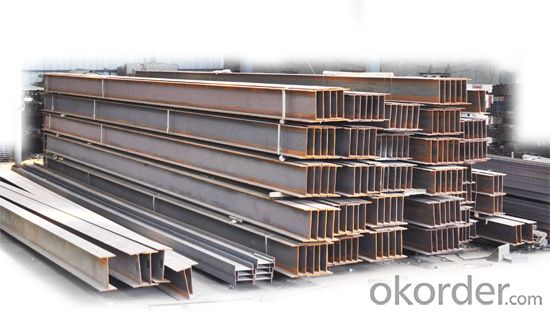
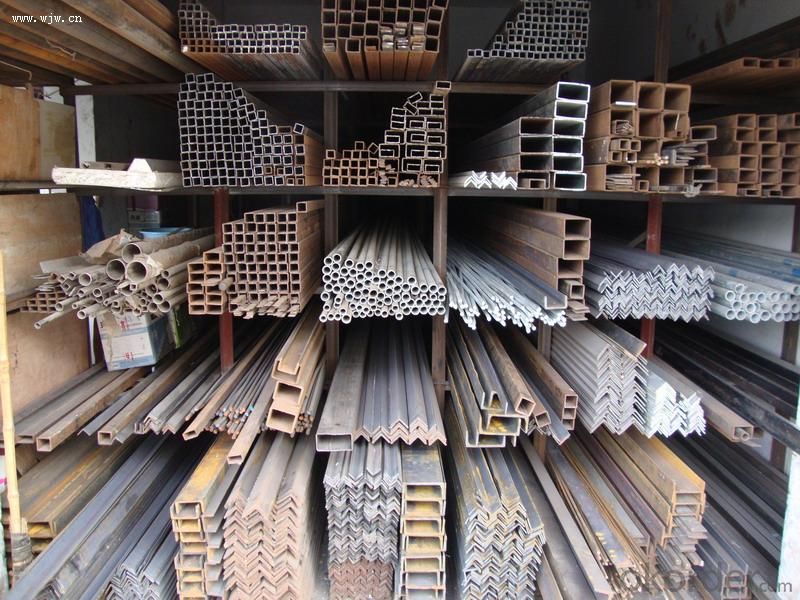
- Q: What are the advantages of using steel pipes over other materials?
- Using steel pipes instead of other materials has several advantages: 1. Exceptional strength and durability: Steel pipes have the ability to withstand high pressure, heavy loads, and extreme weather conditions. This makes them suitable for various uses, such as transporting fluids and gases, providing structural support, and laying underground pipelines. 2. Enhanced resistance to corrosion: Steel pipes can be coated with different materials to increase their resistance to corrosion. This makes them ideal for transporting corrosive substances like water and chemicals without the risk of pipe degradation. Additionally, steel pipes are less prone to rust, which prolongs their lifespan. 3. Long-term cost-effectiveness: Although the initial cost of steel pipes may be higher than other materials, they offer long-term cost-effectiveness. Due to their durability and resistance to corrosion, steel pipes require less maintenance and replacement, resulting in reduced operational costs over time. 4. Versatility: Steel pipes come in various sizes, shapes, and thicknesses, making them versatile for different applications. They can be easily customized and fabricated to meet specific requirements, such as bending, welding, and threading. 5. Fire resistance: Steel pipes have a high melting point, making them resistant to fire and reducing the risk of structural damage in case of a fire incident. This characteristic is particularly important in industries where fire safety is crucial, such as oil and gas, chemical, and construction. 6. Environmentally friendly: Steel is a recyclable material, and steel pipes can be recycled and reused multiple times without compromising their quality. This not only reduces the demand for new materials but also contributes to environmental sustainability. 7. Excellent flow characteristics: Steel pipes have smooth internal surfaces, minimizing friction and allowing for efficient flow of fluids and gases. This advantage is particularly significant in industries where fluid dynamics and energy efficiency are essential, such as oil and gas, water supply, and HVAC systems. In conclusion, steel pipes offer numerous advantages over other materials, including strength, durability, corrosion resistance, cost-effectiveness, versatility, fire resistance, eco-friendliness, and excellent flow characteristics. These advantages make steel pipes the preferred choice for a wide range of applications in various industries.
- Q: How do steel pipes handle high-pressure applications?
- Steel pipes are able to handle high-pressure applications due to their inherent strength and durability. They have a high tensile strength and are resistant to deformation under extreme pressure. Additionally, the seamless construction of steel pipes ensures that there are no weak points or joints that can compromise their ability to handle high pressures.
- Q: SC15 what does galvanized steel pipe look like?
- Ordinary galvanized steel pipe, the outer diameter is 1.5 inches
- Q: How are steel pipes affected by international trade policies?
- Steel pipes can be significantly impacted by international trade policies. These policies can include tariffs, quotas, and other trade barriers that affect the import and export of steel pipes. Changes in trade policies can lead to fluctuations in prices, supply, and demand for steel pipes. Additionally, trade policies can also influence the competitiveness of domestic steel pipe producers in the global market.
- Q: How do steel pipes handle high-velocity flow?
- Steel pipes are highly capable of handling high-velocity flow due to their inherent strength and durability. The robustness of steel allows it to withstand the pressure exerted by the high-velocity flow, minimizing the risk of deformation or failure. Additionally, steel pipes have smooth interiors, which reduces frictional losses and ensures efficient flow rates even at high velocities.
- Q: Galvanized steel pipe, PPR pipe, PE pipe, U-PVC pipe and HDPE double wall corrugated pipe and what is the difference between the characteristics of
- PE pipe, polyethylene pipe, the past is also commonly used in low temperature water, but because of its short life now use less prone to aging, more PE material for the production of plastic bags;
- Q: Can the KBG25 steel tube hold 4 six types of cables?
- 1 of the six lines of cross-sectional area of about 25 square millimeters, 4 to 100 flat, KBG25 cross-sectional area of about 490100/490=20.4%, just over the specifications, so short distance and less elbow can be worn. However, due to the construction of pipes are generally not standardized, elbow more, and do not use special elbow (site bending), so KBG25 wearing 4, six kinds of cable are more difficult.
- Q: How are steel pipes used in automotive manufacturing?
- Steel pipes are widely used in automotive manufacturing for various purposes. One of the primary applications of steel pipes in this industry is for the exhaust system. The exhaust system in vehicles is responsible for the safe removal of harmful gases produced during the combustion process. Steel pipes are used to create the exhaust manifold, which collects the exhaust gases from the engine cylinders and directs them towards the exhaust pipe. Furthermore, steel pipes are also used in the manufacturing of the chassis and frame of vehicles. The chassis provides structural support and helps maintain the overall strength and stability of the vehicle. Steel pipes, due to their high strength and durability, are ideal for creating the chassis and frame. These pipes are often welded together to form a rigid and robust structure that can withstand various forces and impacts. Additionally, steel pipes find applications in the suspension system of automobiles. The suspension system is responsible for providing a comfortable and smooth ride by absorbing shocks and vibrations. Steel pipes are used in the manufacturing of suspension components such as control arms, tie rods, and sway bars. These components help maintain the stability, handling, and overall performance of the vehicle. Moreover, steel pipes are utilized in the fuel system of automobiles. They are used to transport fuel from the fuel tank to the engine. These pipes need to be resistant to corrosion and have high tensile strength to ensure the safe and efficient delivery of fuel. In conclusion, steel pipes play a crucial role in automotive manufacturing. They are used in various applications such as the exhaust system, chassis and frame construction, suspension system, and fuel system. The use of steel pipes in these areas ensures the durability, strength, and performance of vehicles while maintaining safety and efficiency.
- Q: How are steel pipes used in the petrochemical industry?
- Steel pipes are widely used in the petrochemical industry for transporting and distributing various fluids and gases. They are particularly valuable for their durability, strength, and resistance to corrosion, which is crucial when dealing with highly corrosive substances. Steel pipes are employed in various processes such as refining, oil and gas production, chemical manufacturing, and transportation of petrochemical products. Whether it's conveying raw materials, transferring processed products, or supporting infrastructure, steel pipes play a vital role in ensuring the safe and efficient operation of the petrochemical industry.
- Q: What are the common grades of steel used in pipes?
- The common grades of steel used in pipes include ASTM A53, ASTM A106, and API 5L.
Send your message to us
Steels Manufacture Building Material Construction Made in China China on Hot Sale
- Loading Port:
- Tianjin
- Payment Terms:
- TT OR LC
- Min Order Qty:
- 100 m.t
- Supply Capability:
- 1000 m.t/month
OKorder Service Pledge
OKorder Financial Service
Similar products
Hot products
Hot Searches
Related keywords
